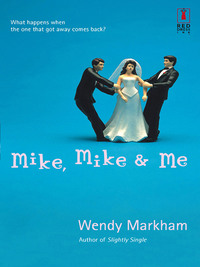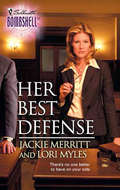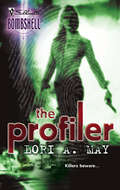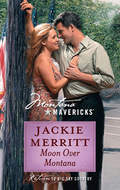Czytaj książkę: «Mike, Mike and Me»
CRITICAL PRAISE FOR SLIGHTLY SETTLED
“Readers who followed Tracey’s struggles in Slightly Single, and those meeting her for the first time, will sympathize with this singleton’s post-breakup attempts to move on in this fun, lighthearted romp with a lovable heroine.”
—Booklist
“Tracey is insecure and has many neuroses, but this makes her realistic…. And like many women, Tracey needs to figure out when to listen to her friends and when to listen to herself.”
—Romantic Times
CRITICAL PRAISE FOR SLIGHTLY SINGLE
“…an undeniably fun journey for the reader.”
—Booklist
“Bridget Jonesy…Tracey Spadolini smokes, drinks and eats too much, and frets about her romantic life.”
—Publishers Weekly
WENDY MARKHAM
is a pseudonym for New York Times bestselling, award-winning novelist Wendy Corsi Staub, who has written more than fifty fiction and nonfiction books for adults and teenagers in various genres—among them contemporary and historical romance, suspense, mystery, television and movie tie-in and biography. She has coauthored a hardcover mystery series with former New York City mayor Ed Koch and has ghostwritten books for various well-known personalities. A small-town girl at heart, she was born and raised in western New York on the shores of Lake Erie and in the heart of the notorious snow belt. By third grade, her heart was set on becoming a published author; a few years later, a school trip to Manhattan convinced her that she had to live there someday. At twenty-one, she moved alone to New York City and worked as an office temp, freelance copywriter, advertising account coordinator and book editor before selling her first novel, which went on to win a Romance Writers of America RITA® Award. She has since received numerous positive reviews and achieved bestseller status, most notably for the psychological suspense novels she writes under her own name. Her previous Red Dress Ink title, Slightly Single, was one of Waldenbooks’ Best Books of 2002. Very happily married with two children, Wendy writes full-time and lives in a cozy old house in suburban New York, proving that childhood dreams really can come true.
Mike, Mike & Me
Wendy Markham

MILLS & BOON
Before you start reading, why not sign up?
Thank you for downloading this Mills & Boon book. If you want to hear about exclusive discounts, special offers and competitions, sign up to our email newsletter today!
Or simply visit
Mills & Boon emails are completely free to receive and you can unsubscribe at any time via the link in any email we send you.
Dedicated with love and friendship to the Siegel family,
Joan, Richard, Rory and Nicholas, and to
the three guys I adore: Mark, Morgan and Brody.
With special gratitude to the brilliant David Staub
of Network Expert Software Systems.
Contents
Chapter one
Chapter two
Chapter three
Chapter four
Chapter five
Chapter six
Chapter seven
Chapter eight
Chapter nine
Chapter ten
Chapter eleven
Chapter twelve
Chapter thirteen
Chapter fourteen
Chapter fifteen
Chapter sixteen
Chapter seventeen
Chapter eighteen
Chapter nineteen
Chapter twenty
Chapter twenty-one
Chapter twenty-two
Chapter twenty-three
Chapter twenty-four
Chapter twenty-five
Chapter twenty-six
Chapter twenty-seven
Chapter twenty-eight
Chapter twenty-nine
Chapter thirty
Chapter thirty-one
Chapter thirty-two
Chapter thirty-three
Chapter thirty-four
Chapter thirty-five
Chapter thirty-six
Chapter thirty-seven
Chapter thirty-eight
Chapter thirty-nine
Chapter forty
Chapter forty-one
Chapter forty-two
Chapter forty-three
Chapter forty-four
Chapter forty-five
Chapter forty-six
Chapter forty-seven
one
The present
So in case you’ve been wondering, I married Mike after all.
Which Mike, you might ask?
And rightly so.
For a while there, it was a toss-up. But when I finally made my choice, I honestly believed it was the right one—that I’d chosen the right Mike.
Only recently have I begun to question that…and everything else in my life. Only recently have I been thinking back to that summer when I found myself torn between the guy I’d always loved and the guy I’d just met.
That they shared both a name and my heart is one of life’s great ironies, don’t you think?
Then again, maybe not. According to the United States Social Security Administration, Michael was the most popular boys’ name in America between 1964 and 1998. Odds are, if you’re a heterosexual female who was born between those years—as I am—you’re going to date a couple of Mikes in your life. As I did.
Meanwhile, if you’re a heterosexual male who was born in those years, you’re going to date a couple of Lisas. That was the most popular girls’ name the year I was born.
I’m not Lisa.
Remember that song? All about how she wasn’t Lisa, her name was Julie. It was a big hit when I was a kid. I remember singing it at slumber parties with my best friends—two of whom were named Lisa.
But I’m not Lisa. I’m not Julie, either.
My real name is Barbra. Spelled without the extra “a,” like Barbra Streisand’s. That’s not why mine is spelled that way; I was born back in the mid-sixties, before my mother ever heard of Barbra Streisand.
My father—who if his own name weren’t Bob probably wouldn’t be able to spell that—filled out the birth certificate while my mother was sleeping off the drugs they used to give women to spare them the horrific childbirth experience.
That, of course, was back in the Bad Old Days when they didn’t realize that the fetus was being drugged as well—otherwise known as the Good Old Days, when nobody was the wiser and nobody was feeling any pain.
I always figured that when it was time for me to give birth, I’d want those same drugs.
Am I a wimp? you might ask.
Um, yeah. I’ve never been good with pain—I’m the first to admit it. I stub my toe; I scream. I get a sliver; I cry. I see blood; I faint.
By the time I got pregnant, I had heard enough gory details from my friends to know that it would be in everyone’s best interest if I were knocked out before I reached the stage where it was a toss-up whether to call in the obstetrician or an exorcist.
I envisioned drifting off to a medically induced la-la land, waking up feeling refreshed, and having somebody hand me a pretty, pink newborn, even if my husband spelled its name wrong while I was out.
Alas, that wasn’t to be.
For one thing, we knew that our firstborn son would be named after my husband, who is conveniently familiar with the spelling of Mike.
For another, when—about five minutes into my first pregnancy—I asked my doctor about drugs, he recommended a childbirth class where I would learn to use breathing and imagery to control the pain. Call me jaded, but I didn’t see then and I don’t see now how huffing and counting and focusing on a flickering candle or, God help me, a favorite stuffed animal, can possibly make you forget the nine pounds of wriggling human forcing its way out of you the same way it got into you nine months—and nine pounds—ago.
As the scientific theory goes, what goes in must come out. Eventually. Somehow. And the coming-out part is never as much fun as the going-in part.
Whose scientific theory is that? you might ask.
It’s mine. And you should trust me, because I’m an expert.
If you’ve ever eaten all your Halloween candy before the calendar page turned to November—or if you’ve ever done too many shots of tequila on your birthday—then you’re an expert, too.
But if you can’t relate to childbirth or vomiting up a pound of chocolate or a pint of hard liquor, think about this: back when Mike and I were first married, he and my father carried our new couch up two flights of stairs to our one-bedroom apartment in Queens. When we moved a few years later, the movers we hired couldn’t get the couch out. No matter which way they turned it, they couldn’t make it fit through the doorway. They finally told me that the only way to get it out was to remove one of the legs.
Now, normally, I don’t balk at being the decision maker in our marriage. But, normally, strange men don’t request a saw to disfigure our furniture.
I tried to reach Mike at work to see what he wanted me to do—in other words, to ask his permission for the couch amputation—but he wasn’t there.
So the movers sawed off a leg; the couch fit through the door; they moved it to our new house up in Westchester.
When Mike arrived that night, fresh—not!—from his first train commute and ready to collapse, he immediately noticed that the surface he was about to collapse onto was tilting dangerously.
I explained what happened.
He was incredulous.
Okay, not just incredulous. He was other things, too. Including royally pissed off. Now that I’ve had almost a decade of enlightenment regarding Mike’s daily commute to the city, I can attribute his fury that night, at least in part, to an hour spent on an un-air-conditioned railroad car sandwiched in a middle seat between two large businessmen who carried on a conversation across his lap. But at the time, in my seminewlywed overanalytical self-absorption, I concluded that everything was all my fault.
Him: “How the hell could you let them cut the fucking leg off the goddamn fucking couch?”
Me: “I had no choice.”
Him: “We got the fucking couch in. They’re goddamn professionals and they couldn’t get it out? And what kind of movers carry a goddamn fucking saw around to cut the legs off people’s furniture?”
Me: “They don’t. I ran out and bought one.”
Him: “You bought the saw?”
Me: “The goddamn fucking saw. They told me to.”
Him: storms off, spends sleepless night trying to keep balance on the aforementioned—and seriously listing—goddamn fucking couch.
Me: spends sleepless night sobbing into pillow over first significant married fight.
When I say significant, I refer to the fights that stand out in a couple’s mutual memory. Not the arguments that happen along the way: arguments about the thermostat or what color to paint the bedroom or who should buy the Mother’s Day cards for his side of the family. I’m talking Fight, fights. Lying-awake-at-dawn-crying fights. Who-are-you-and-what-have-you-done-with-the-man-I-married fights.
Actually, I can count on one hand the number of fights and sleepless nights we’ve had in our marriage.
After the moving ordeal, our next sleepless night—and, incidentally, our next significant married fight—was a year or so later, when I was ten centimeters dilated and pushing. Does that fight count? I mean, I truly wasn’t myself at the time.
Who was I? you might ask.
I was Lizzie Grubman meets Shannon Dougherty meets Valdemort—a temporary state brought on by the sheer physical agony of childbirth.
And Mike—who was supposed to be coaching me—was just plain stupid at the time, a temporary state I’ll chalk up to low blood sugar. I’ll admit that it was due in part to the fact that I wouldn’t let him visit the hospital cafeteria—or even the vending machines—for the twenty-four-hours-plus that I was in excruciating labor, lest he miss the big event. That’s how stupid I was. I kept thinking that any minute now, there would be a baby. I kept thinking that for, oh, sixteen thousand minutes or so before it actually happened.
Anyway, here’s how stupid Mike was: He brought up the couch story in the midst of my agony.
“You can do it, hon,” he crooned. “You can get this baby out. Unless you want me to run out and buy a saw so that we can cut off one of its legs?”
Har de har har, right? Funny guy, that Mike.
Of course, he then found it necessary to make like Jay Leno and regale the nurses, the doctor and a passing orderly with the Couch Monologue. They all had a good laugh at my expense while I writhed and moaned and cursed the epidural that didn’t work and swore that if the baby ever came out I would be a single mother because I was getting a divorce.
As it turned out, I didn’t.
As it turned out, neither did my parents, although they’re such opposites that most people say it’s a miracle they’ve stayed together all these years.
Anyway, as I was saying before I went into my longer than anticipated digression, my father—who is good at many things, including, fortuitously for us, fixing freshly sawn-off couch legs—has never been good at spelling. He likes to tell people that’s because he’s an accountant—as though an accountant requires prowess only with numbers and not with that pesky alphabet.
So when he filled out the paperwork after I was born, he left out the second “a,” and by the time anybody figured it out, it was too late. My mother woke up and I was Barbra and that was that.
My three older brothers used to tease her—and me—that it was a good thing he had left off the second “a” instead of the third one along with the first “r,” in which case, I’d have been named after the large gray elephant in the French children’s story.
My mother wasn’t amused. It isn’t that she has anything against children’s literature; she is, after all, a middle-school English teacher. She is also a fanatic about all things spelling-and grammar-related. From what I hear, she didn’t speak to my father for a few days after she discovered the spelling mistake in my name. But, like I said, they managed to stay married.
Around the same time I came along, Barbra Streisand became a household name and validated the unorthodox spelling of mine. I can barely remember anybody ever calling me Barbra anyway. I was dubbed Beau early on, and I have never since been anything but.
My parents gave me the nickname because it’s short for Beaulieu, as in Priscilla Beaulieu Presley, Elvis’s wife. They thought I looked a lot like her. Which I do. In fact, complete strangers have come up to me and said that over the years.
I never mind when people do that. I mean, it’s not like they’re telling me I look just like Cyndi Lauper or something.
Priscilla was, and still is, beautiful.
Three pregnancies and a lifetime ago, I was also beautiful. Now I’ve got a seven-year-old, a preschooler and a baby. I’ve also got flab, stretch marks, varicose veins, dark circles under my eyes, sagging breasts that have nursed three children, with nipples that hit my belly button, and a childbirth-traumatized crotch that leaks pee if I laugh.
Which I don’t, lately.
That, I suppose, is a blessing. But it doesn’t feel like one.
Damn, it used to feel good to laugh until tears streamed from my eyes instead of my bladder.
Things that used to make me laugh that hard: being tickled by my dad. The scene in Planes, Trains and Automobiles where Steve Martin and John Candy are in the car that catches fire. Seinfeld—even the reruns I’ve seen a dozen times.
Oh, and my husband, Mike.
He really cracked me up back when we were dating. When we were first married, too, even after we moved up here to the suburbs.
He used to do this dead-on imitation of our crotchety old neighbor, Mrs. Rosenkrantz, that was hilarious—and, I suppose, cruel, if anybody but me had ever seen it. But nobody ever did. It was our special thing.
We’d be doing some mundane task—folding laundry or grocery shopping—and I’d say, “Do Mrs. Rosenkrantz for me, please,” and he would. He’d be Mrs. Rosenkrantz folding laundry or Mrs. Rosenkrantz grocery shopping, and I swear I’d be on the floor gasping for air.
Mrs. Rosenkrantz died right before I gave birth to our second son. I was in labor for the wake and in the hospital for the funeral, so we didn’t go. We came home with our tiny blue bundle to find a rented wooden stork on our lawn and a For Sale sign on hers.
Once or twice after that, I asked Mike to “Do Mrs. Rosenkrantz,” and he obliged, but it wasn’t the same.
A lot of things haven’t been the same since then. Some are better, some are worse—but nothing is the same. Lately, I find myself missing the way things used to be.
I don’t miss Mrs. Rosenkrantz, though—I just miss laughing at her. Or, rather, laughing at my husband’s impression of her.
A young family from the city bought her house. Where we live, in the leafy northern suburbs of New York, young families from the city always buy dead old people’s houses. This was a nice family, the Carsons. They have a daughter my older son’s age and a son my second son’s age and twins on the way any second now. The mom, Laura, is a lot of fun when she isn’t eight months pregnant with multiples in the blazing dead of July, and the dad, Kirk, coaches Little League with Mike.
On hot summer days we grill and drink beers on their deck or ours while the kids play in the sprinkler, and on cold winter days we shovel while the kids build snowmen. The Carsons pick up our mail and Journal News when we’re on vacation and we pick up their mail and Journal News when they’re on vacation, and we keep saying that one of these years we should vacation together.
It sounds good, doesn’t it?
Yeah. Suburban bliss.
Three kids, a raised ranch, an SUV and a 401K. We have everything but a dog, but the boys have been begging for one, and sooner or later I know I’m going to give in and we’ll have the dog, too.
They, like I, will have everything they always wanted.
I was born under a lucky star. That’s what my mother always said, shaking her head and laughing. Things came easily to me from day one. Friends…contest prizes…school elections…boyfriends.
If I wanted something, I got it.
This life is what I’ve always wanted. Isn’t it?
Well, isn’t it?
Back when I was young and single and dating my husband—along with the other Mike, the one I didn’t marry—I dreamed of the life I have now. I figured it would be mine for the taking, because most things were.
Be careful what you wish for—or so they say.
They being the same they my grandmother is always quoting; the they who say beauty is only skin deep, and when the cat’s away, the mice will play, and love and marriage go together like a horse and carriage.
Or was that Frank Sinatra?
Not that it matters. Grandma Alice quotes him, too.
The thing is, there’s truth in all clichés—that’s why they’re clichés.
So here I am, a living cliché, on the cusp of my fortieth birthday, reminding myself that I have everything I ever wanted—and trying desperately to remember why the hell I wanted it in the first place.
two
The past
“If I were you,” Valerie told me, lounging on her unmade bed and polishing her toenails that stifling July night, “I’d wear the red. Mike likes you in red, right?”
“He does, but…” I surveyed my image in the full-length mirror we had bought at Woolworth’s and tacked to the back of our closet door only a few days ago. God only knew how we had managed to live in that apartment for almost a year without a full-length mirror.
But Valerie claimed that when she couldn’t see the thirty pounds she had to lose, she didn’t worry about them.
The day after we bought the mirror—my idea—she went back on her diet. It was the same diet she had been on—and off—for the past year or two.
You would think something as drastic as eliminating all fat grams from one’s diet would work. At least, Valerie would think that. It seemed a little extreme to me. But then, I was blessed with a normal weight and a high metabolism. I couldn’t imagine giving up ice cream, chicken chimichangas with cheese, or Popeye’s fried chicken with mashed potatoes and Cajun gravy.
Whenever Valerie was on her low-fat diet, I had to sneak my indulgences so that she wouldn’t be tempted to stray from her oat-bran-strewn path. Of course, sooner or later, she always did, but at least I knew it wasn’t my fault.
“This is new. Don’t you like it?” I asked Valerie, gesturing at the black spandex minidress I was wearing.
I wiped a trickle of sweat from my forehead as she contemplated my appearance. Damn, it was hot, despite the open window and the rotating floor fan in front of it. This was my second summer in Manhattan. Last year, I was so thrilled to actually be living here that I guess I didn’t notice the heat in our fourth floor, un-air-conditioned one-bedroom walk-up.
I do remember noticing the street noise—the round-the-clock horn-honking, sirens, construction-site jackhammers, the throbbing bass from passing car radios and neighborhood bars. It took me a while to get used to the incessant din that accompanied daily life on the Upper West Side. After I did get used to it, whenever I went upstate to visit my family, the nights seemed preternaturally quiet.
Valerie shrugged, set aside the bottle of pale frosted pink polish and said, re: my outfit, “I don’t know, Beau. Don’t you think it’s kind of…”
“Short?”
“Yeah, that. And…”
“Dark?”
“That, too. But also kind of…”
I opened my mouth again, but this time Valerie finished her own sentence.
She finished it with “slutty,” and I grinned.
“I haven’t seen Mike since April, Val. After three months apart, maybe I want to look slutty.”
“No, you want to look sexy. The red one is sexy. This one is slutty. There’s a big difference. Hey, I love this song!” She reached toward the stacked plastic milk crates serving as a nightstand between our two beds and turned up the volume on the boom box.
“I hate this song,” I grumbled, recognizing the all-too-familiar opening strains of Paula Abdul’s “Forever Your Girl.”
“I thought you loved it.”
“I didn’t ‘love’ it, I liked it. And that was last month, before they played it every five minutes on every radio station in New York.”
As Valerie sang the opening, “Hey, baby,” in an off-key falsetto, I couldn’t resist adding, “Anyway, I like new-wave stuff much better than pop. Pop is so over.”
“That’s what you said about Madonna last year, and now look. She’s everywhere again.”
“I give her five minutes,” I said darkly. “And Paula Abdul gets ten. Nobody will ever have heard of either of them in a few years. But INXS and The Cure will be around forever, like the Beatles. Mark my words.”
She was too busy singing along with flash-in-the-pan Paula to mark my words, so I picked up the hanger draped with the red dress. It was a month old and I had worn it at least three times already, but of course Mike had never seen me in it. Holding the hanger against my shoulders, I surveyed my reflection.
The short skirt had a ruffled flare, reflecting the lambada craze that had overtaken everyone’s wardrobe that summer. My light brown hair was pretty much bigger than the skirt: long, kinky-permed and teased on top, with the bangs sprayed fashionably stiff and curving out from my forehead like a tusk.
“I don’t know,” I told Valerie. “I think I like the way the black clings better.”
Lying on her back and waving her legs around in the air to dry her toenail polish, Valerie interrupted her singing to say, “I’d kill to like the way something clings on me.”
I never knew how to respond when she made comments like that. It wasn’t easy being five foot seven and a hundred and twenty pounds when your best friend was six inches shorter and a good thirty pounds heavier.
I know, I know…it was probably much harder to be the shorter, heavier one. But I couldn’t help feeling awkward whenever Valerie looked at me with blatant envy…like she was right now.
I tried to think of something nice to say about the neon-blue spandex bicycle shorts she was wearing with an oversize neon-orange T-shirt, but I was at a loss. Spandex wasn’t the most flattering trend if you weren’t built like a pencil. Which, fortunately, I was. And which, unfortunately, Valerie wasn’t.
“My toes are never going to dry with this humidity. Wouldn’t you kill for a window air conditioner?” Valerie asked, still waving her legs around in the air.
“Maybe we can scrape up enough money to buy one.”
“Yeah, right.” She snorted.
So did I. Naturally, we were both broke. She made eight bucks an hour as an office temp and had yet to land a full-time job with benefits. I had the full-time job and the benefits, but I made a mere seventeen thousand dollars a year. Back in my small hometown, that would have been a fortune. Here, it barely covered the absolutely vital three Cs in every girl’s life: cocktails, cigarettes and chimichangas. At least, those were the things that were vital in mine.
“I suppose you want me to clear out of here tonight,” Valerie said, getting off her bed to join me in the mirror, wielding a tall pink and black can of Aqua Net. She sprayed her towering blond hair liberally, then offered me the can.
I misted my head and handed it back. “Is that all that’s left? Didn’t you just buy that yesterday?”
She shrugged. “I’ll pick up more during lunch hour tomorrow.”
Ugh. Between the hair spray and the sweat, everything north of my neck felt sticky. I stripped off the black dress and stepped back into my own bike shorts—neon pink, with fluorescent green stripes up the thighs—and oversize neon-green T-shirt, which I knotted over my left hip.
“So, like, do you want me to see if I can sleep at Gordy’s tomorrow night?” Valerie asked, taking a cigarette from the open pale green box of Salem Slim Lights on her dresser and offering the pack to me.
Gordy had been our friend since the three of us met at college upstate freshman year. He moved to New York after graduation, same as we did. He was the ultimate cliché: an aspiring actor/waiter who came out of the closet only after his staunchly Roman Catholic parents finished putting him through college. They promptly disowned him, leaving me and Valerie as his only “family.” He had a studio apartment in Hell’s Kitchen, a scary neighborhood we ventured into only in pairs, and only in broad daylight.
“You don’t have to stay there,” I said around the cigarette in my mouth as I held a lighter to it. I took a deep drag, then told Valerie, “I mean, it’s a work night and everything.”
Naturally, I was hoping she would protest.
She did. Sort of. “Well, don’t you want to be alone with Mike on his first night here?”
“Yeah, I do, but…”
I waited for her to say that it was no problem; that she was absolutely going to Gordy’s. She didn’t say it. She just blew a smoke ring and shrugged.
Dammit.
Don’t get me wrong. Valerie was a great roommate. She didn’t snore, she washed her own dishes, she ogled Officer Tom Hanson aka Johnny Depp on 21 Jump Street with me religiously every Sunday night.
But she didn’t have much of a social life, which meant that unless she was at work—currently a temp job at a textbook publishing house—she was pretty much always home.
That wasn’t a problem when my boyfriend wasn’t coming to visit me for the first time since he’d finished grad school in Los Angeles in May.
Mike, who now had a master’s degree in computer science, had set up a bunch of interviews in Manhattan. I was praying he’d land a job and move back East, because I was starting to realize that the alternative was me giving up my dream job as a production assistant on a television talk show and moving out West. I had been born and bred in New York State, and I had no desire to move to southern California.
I sensed that Mike was going to try to convince me that I should, though. He was from Long Island, but he had fallen in love with California. When I visited him there in April, he kept talking about how I could get a great job in the television industry. When I pointed out that I already had a great job in the television industry, he pointed out that the quality of life on the West Coast was so much better than in New York.
“See, Beau? You don’t have to step over homeless people every time you walk out the door,” he said as we crawled along in his convertible on the 405 one sunny afternoon. He gestured at the blue skies and palm trees overhead. “Everything’s clean, there’s no snow and you don’t have to be jammed on the subway with a million strangers.”
“No, you just have to be jammed on the freeway with a million strangers in a million cars.”
That he so obviously preferred the L.A. traffic to the N.Y.C. crowds scared me then, and it scared me now.
He was really excited about some independent computer research project he and a couple of other grad students had been working on. The project was supposed to end when school did, but it had apparently morphed into something bigger, which was why he was still in California.
He hadn’t actually come out and said that he was considering staying on the West Coast for good, but I got the hint.
But thanks to my pushing, he had arranged these interviews in Manhattan. I had my heart set on living happily ever after with Mike, à la Michael and Hope on my favorite show, thirtysomething, and I was determined to do it right here in New York.
I figured that while he was in town this week, when he wasn’t busy interviewing or spending time with his parents, he and I could do some preliminary apartment hunting. He’d have a job lined up before he flew back West; I’d go with him; we’d load up his car with all his belongings and drive back here together. He could stay with his parents—or, better yet, with me—until our new place was ready. I was sure Valerie wouldn’t protest.
Never mind that our place was almost too small for us two women, and I hadn’t actually checked with her. Never mind that I had already used up my first year’s allotment of one week’s vacation. And never mind that Mike and I hadn’t yet discussed the prospect of living together.
Darmowy fragment się skończył.








